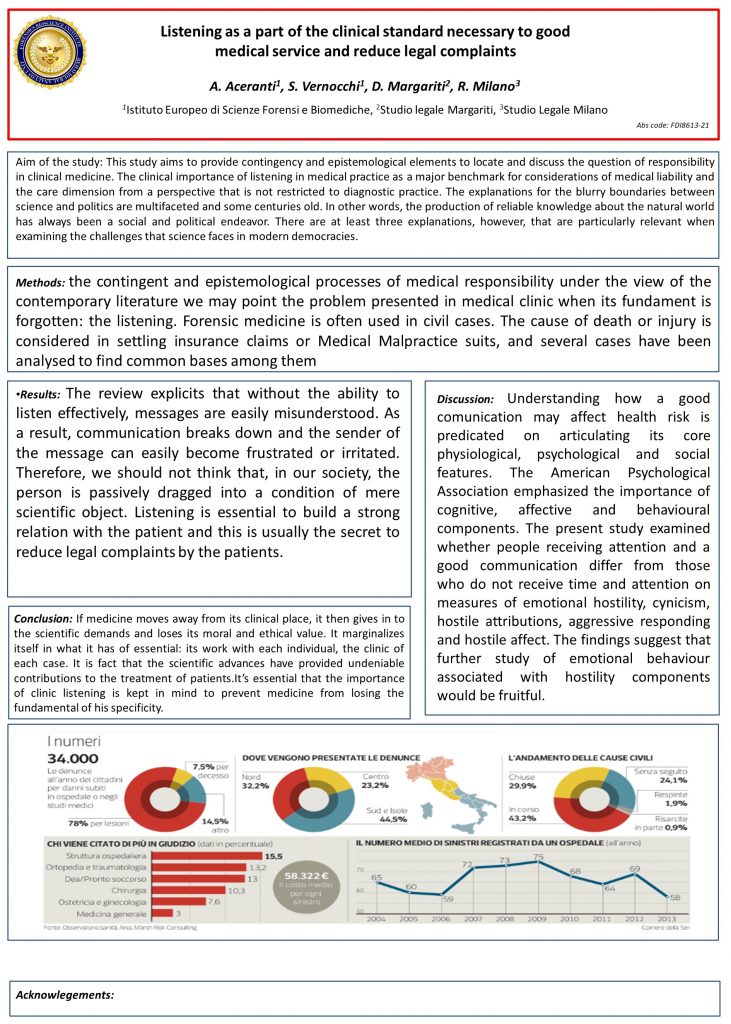Often listening is under-rated. The more time we spend listening to our patients and clients, the less likely legal complaints become.
Aim of
the study: This
study aims to provide contingency and epistemological elements to locate and
discuss the question of responsibility in clinical medicine. The clinical
importance of listening in medical practice as a major benchmark for
considerations of medical liability and the care dimension from a perspective
that is not restricted to diagnostic practice. The explanations for the blurry boundaries
between science and politics are multifaceted and some centuries old. In other
words, the production of reliable knowledge about the natural world has always
been a social and political endeavor. There are at least three explanations,
however, that are particularly relevant when examining the challenges that
science faces in modern democracies.
Methods:
the contingent
and epistemological processes of medical responsibility under the view of the
contemporary literature we may point the problem presented in medical clinic
when its fundament is forgotten: the listening. Forensic medicine is often used in civil cases.
The cause of death or injury is considered in settling insurance claims or
Medical Malpractice suits, and several cases have been analysed to find common
bases among them
Results:
The review
explicits that without the ability to listen effectively, messages are easily
misunderstood. As a result, communication breaks down and the sender of the
message can easily become frustrated or irritated. Therefore, we should not
think that, in our society, the person is passively dragged into a condition of
mere scientific object. Listening is essential to build a strong relation with
the patient and this is usually the secret to reduce legal complaints by the
patients.
Discussion:
Understanding
how a good comunication may affect health risk is predicated on articulating
its core physiological, psychological and social features. The American
Psychological Association emphasized the importance of cognitive, affective and
behavioural components. The present study examined whether people receiving
attention and a good communication differ from those who do not receive time
and attention on measures of emotional hostility, cynicism, hostile
attributions, aggressive responding and hostile affect. The findings suggest
that further study of emotional behaviour associated with hostility components
would be fruitful.
Conclusion:
If medicine
moves away from its clinical place, it then gives in to the scientific demands
and loses its moral and ethical value. It marginalizes itself in what it has of
essential: its work with each individual, the clinic of each case. It is fact
that the scientific advances have provided undeniable contributions to the
treatment of patients.It’s essential that the importance of clinic listening is
kept in mind to prevent medicine from losing the fundamental of his
specificity.

Authors: A. Aceranti, S. Vernocchi, D. Margariti, R. Milano
Published: Italian Journal of Medicine, Sept 2018
Presented: Poster at the FADOI National Congress 2018
Fonte dell’immagine: Osservatorio Sanità Marsk Risk Consulting


